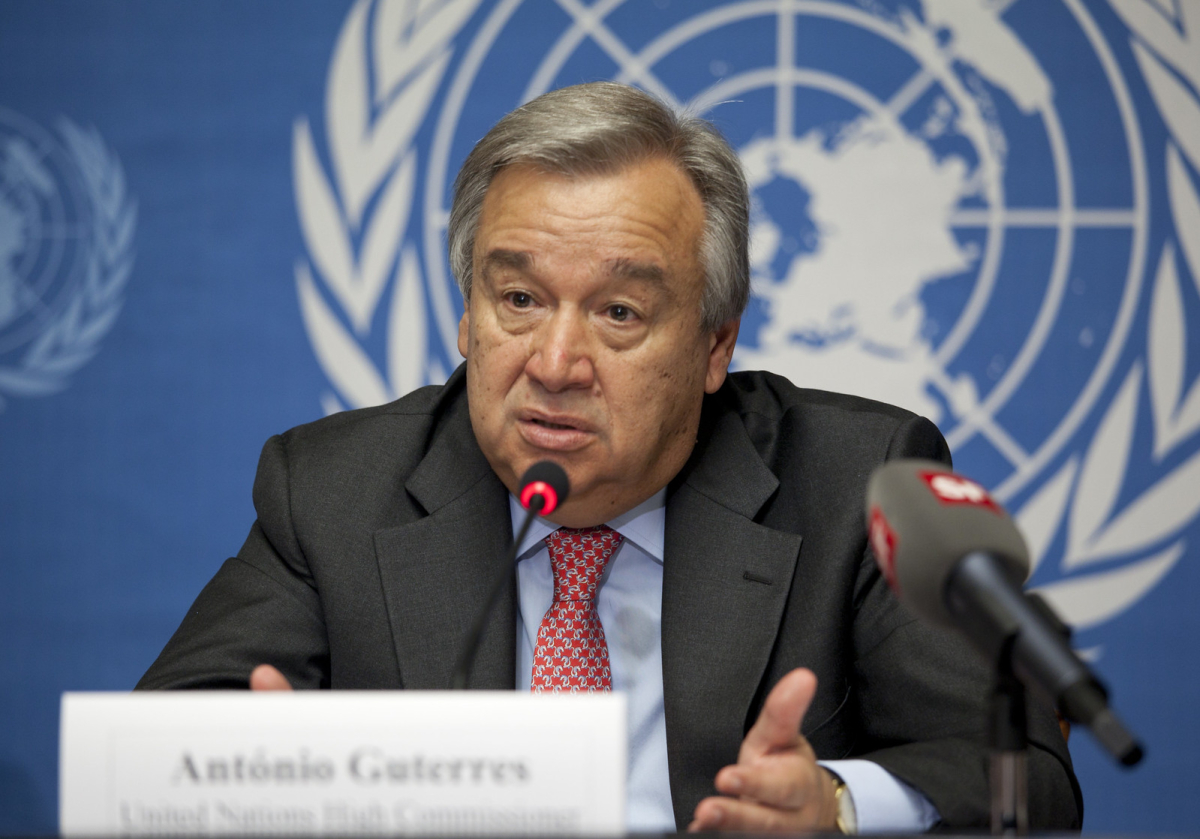Support strong Canadian climate journalism for 2025
The United Nations chief sharply criticized the “grotesque greed” of oil and gas companies on Wednesday for making record profits from the energy crisis on the back of the world’s poorest people, “while destroying our only home.”
Secretary−General Antonio Guterres said it was “immoral” that the largest energy companies in the first quarter of the year made combined profits of close to $100 billion.
He urged all governments to tax these excessive profits “and use the funds to support the most vulnerable people through these difficult times.”
Guterres urged people everywhere to send a message to the fossil fuel industry and their financiers that “this grotesque greed is punishing the poorest and most vulnerable people, while destroying our only home.”
The secretary−general spoke at the news conference launching a report by the Global Crisis Response Group he set up to tackle the triple interconnected crises of food, energy and finance which have especially hit countries trying to recover from the COVID−19 pandemic and deal with the devastating impact of the war in Ukraine.
The group has already presented recommendations on food and finance and Guterres said he believes “we are making some progress” in those areas, especially on food.
The report released Wednesday focuses on the energy crisis, and the secretary−general said it aims to achieve the equivalent of the grain deal he first proposed to the Russian and Ukrainian presidents to enable Ukrainian grain to be shipped from Russian−blockaded ports on the Black Sea to world markets in desperate need of food supplies. The first ship to leave Ukraine was headed to Lebanon Wednesday after a three−hour inspection in Turkish waters.
In another key recommendation, the group urges richer developed countries, especially, to conserve energy and promote public transport “and nature−based solutions.”
Guterres said new technologies including storage for batteries “should become public goods,” and governments must scale up and diversify supply chains for raw materials and renewable energy technologies.
The group also recommends scaling up private and multilateral finance for “the green energy transition.” And it backed the International Energy Agency’s goal of increasing investments in renewable energy by a factor of seven to meet the goal of cutting greenhouse gas emissions to “net zero” by 2050 to help curb man−made climate change.
“Every country is part of this energy crisis, and all countries are paying attention to what others are doing,” Guterres said. “There is no place for hypocrisy.”
He said many developing countries living with severe impacts of the climate crisis including storms, wildfires, floods and drought don’t lack a reason to invest in renewable energy but they need “concrete, workable options” −− and he said developed countries urging them to invest in renewables aren’t providing enough social, technical or financial support.
Guterres criticized some of the same developed countries for introducing universal subsidies at gasoline pumps and reopening coal plants, saying it’s difficult to justify these actions even on a temporary basis.
He said any subsidies and reopening of coal plants “must be strictly time−bound and targeted” to ease the energy burden on the poor and promote the transition to renewables.




Comments
Thank you to Antonio Guterres for having the courage to speak out regarding how greed is obstructing progress on the climate crisis. And the world's politicians haven't forced greedy oil companies and others to be accountable.
To the author: I would prefer the term "human-made" rather than "man-made" in reference to climate warming. Man-mad excludes women.
Thank you.
Generous of you to be willing to share the blame, although given the history, "man-made" isn't so far from the reality.
Our society has a cognitive dissonance thing happening. It relies explicitly on the idea that grotesque greed indulged to the maximum possible extent is how an economy should be run. Then when that turns out not to work out so good, we denounce "grotesque greed" as if it was a universally acknowledged sin that had nothing to do with how we run things. The grotesque greed and its consequences ain't gonna go away until capitalism does.
Maybe there's room for something quite far shy of absolute, unfettered capitalism. Ontario Hydro was publicly owned, till the last provincial Liberal administration sold off a controlling interest in it (and still somehow the then premier claimed that gov't could still call the shots -- call it the failure of our education system, that either she didn't know better herself, or that so many believed her.)
The essentials should all be subject to profit limits ... and there's no good reason I can tell that things like highways, airports, railways and train stations, communications systems infrastructure, water infrastructure shouldn't *all* be publicly owned.
And maybe it would help if we started by literally investing in truly green projects: actually investing, rather than just providing grants and subsidies.
It would also help if politicians and civil servants stopped lying about what's green and what's not, carbon/methane/etc. counts, etc.